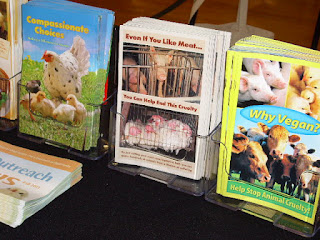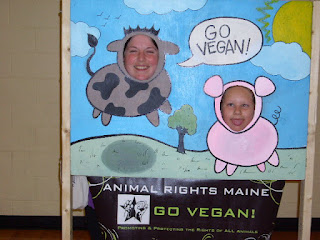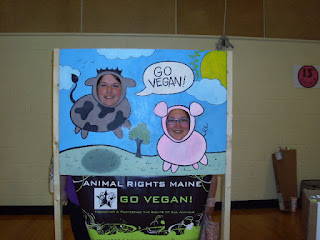I hope everyone is having a great Summer now that the Solstice has passed us and we are trying to make the most of this warm, joyous time before slipping into Fall. I love Halloween more than any other time of year but let's not rush!
Speaking of Halloween (Samhain), Gwen and I plan to go to Salem for a week in October. I also plan to take Witchcraft II from Laurie Cabot as soon as I can. It will probably be next year. Check out her website for info on her great classes at http://www.lauriecabot.com/ or her Salem Temple at http://www.cabotkenthermetictemple.org/
I just thought it was time to put up a small book list for Green Witchcraft and related studies. Paganism is a very personal journey and lots of ecclectic study is the norm. Yet if you go to a bookstore or website and start searching the topic it can be a little overwhelming. That's why I'm putting up a small reading list here...only books I own and have read...to help narrow it down. I will try to do so every now and then. This list is books I feel relate most strongly to my vegan path as well as my spiritual one. Although most paganism involves elements of embodied spirituality and ecological ethics, I think these books are very strongly connected to environmental and animal rights lifestyle.
Earth Centered Spirituality (Joyce and River Higginbotham): this is a great place to start if you are totally new to paganism and may not even be sure if it is the path for you. The book is deliberately ecclectic and uses "paganism" as umbrella term for many trads without getting into the specifics of any one. For example, I tend to use "paganism" as a general term also but I personally am a witch, initiated in the Cabot-Kent Trad and also fairly ecclectic in my personal journey. The Higginbotham book mentions several different trads that people might want to look into but stays very general about magic, ethics, deities, and so on. It is also a great book to refer your curious friends and family to if you come out of the broom closet and they have a lot of questions (and/or misconceptions) about paganism.
Earth Magic: This is a audio CD by Starhawk, which is also a very basic primer but focuses on what I would call ecclectic Wicca. It has several chapters of basic informaiton and a couple of guided meditations. It is slightly less general than the Higginbotham book because it is grounded in one trad (Wicca) but it is also very general in the sense that it is basic info that would apply to most more localized trads within Wicca. The term Wicca is often used as if it was a general term for all pagans but this is not really the case. Wicca is a specific path that differs from say Asatru (Norse) or Druidry (Celtic).
The Earth Path (Starhawk): This is one of many great Wicca primers by Starhawk and it deals with ecology, ethics, permaculture, etc. Starhawk tries to write from a fairly general Wicca standpoint in order to make her writing meaningful to many readers. She is also a leader in the trad of Reclaiming Witchcraft.
I also recommend Starhawk's books Spiral Dance and Twelve Wild Swans or -- let's face it -- anything with her name on it. These two books are primers in a very Reclaiming Witch style of Wicca that focuses on magical empowerment, activism, and ethics.
Circle Round is a Reclaiming-grounded book of ritual songs with an accompanying CD if you want to learn some songs for your first trip to a public ritual.
Grimoire for the Green Witch (Ann Moura) is a thick how-to full of fun info like Theban and Futhark runes, spells, ways to celebrate Sabbats (the big pagan holidays) and Esbats (full moons), incense recipes, and teas.
Druidry (Emma Restall Orr) this is a short, glossy hardcover that serves as a good basic intro to Druidry. I suggest this one as a first stop because Druidry is a huge trad with tons of books and it can be hard to choose material until you have some basic idea of what the trad is all about. Druidry has a especially European personality and can be a bit hard for Americans to get hold of at first but it is a very, very "green" trad with deep roots.
The Deva Handbook: How to Work with Nature's Subtle Energies (Nathaniel Altman): This book introduces the reader to the concept of Elemental Spirits or Energies and how pagans can relate to them. Ever heard of the Findhorn community in Scotland? The Deva handbook is an intro to that kind of stuff. The Elementals are basically what we often refer to as "fairies," but without the sparkle and wings. Without the fluff, actually. Work with Elementals is a very interesting path to explore and touches on some very primal magical work. It is also very easy to connect Elemental work with veganism/animal rights.
While we're on the subject of fairies, there are plenty of other pagan practices that work with Earth Spirits/Elementals/the Fey. One of the most intriquing is the trad of Feri Witchcraft, which is notoriously secretive about its inner workings and definitely has nothing to do with Tinkerbell. T. Thorn Coyle has written an excellent primer for public-consumption called "Evolutionary Witchcraft."
Well, that's what I have for now. Enjoy! :0)
Tuesday, June 26, 2012
Monday, June 25, 2012
VegFest 2012
Gwen, Autumn and I (Leslie) had a "girls day out" at the 2012 VegFest in Portland (Maine) this weekend. The workshops were great and it was excellent networking with vegans and animal rights activists from all around the state. Plus, who doesn't like a gag photo opp?! :^D
Friday, June 22, 2012
Farm Sanctuary Visit!
You can see that I very often reference Farm Sanctuary (http://www.farmsanctuary.org/) on the blog, and last week I was blessed to be able to visit there with my dad! He lives upstate about two hours from the farm, which is in Watkin's Glen, NY. Here are come pics. I was impressed by how many out of the area license plates were there for a visit besides me. I was also heartened by how many families with young kids were on the tours. Vegans, the future may just be ours! In the "people barn," where tours started, there was a great kids' area, info on advocacy, a celebrity support wall, walls of hope about the rescued animals, and more. The gift shop featured great books for adults and kids (I saw a family buying "Vegan is Love") as well as shirts, bumper stickers, and the usual bling. Their gift shop was also the only place in upstate where I saw primal strips or go-max-go candy bars for sale. What's up with that? They need some serious vegan-consumer activism in their local health food stores and hannafords. Good thing I pack a cooler anytime I travel. I had plenty of jerky, hummus, a couple of Sweet'n'Sarah smores, and a precious little brick of Daiya Havarti which I guarded like a gollum. My non-vegan dad and step-mom loved it, tho! It sucked to have to tell them I hadn't found any locally.
For the animals, blessed be.
For the animals, blessed be.
Summer Solstice
Gwen and I went to the Temple of the feminine divine ritual in Bangor this week and it was great, as always. In the ritual we focused on the growth of new things/goals in our lives, as the growing season around us kicks in full force. We wove herbs and flowers into a pentacle made of vines. One of the priestesses took it home to hang in her garden until next Summer. As the elements erode the pentacle, we envsion our intentions being carried forth and worked upon by the universe.
Hope you all had a great solstice too!
Hope you all had a great solstice too!
Vegan Grilling
Just a few pics of my vegan italian sausages with peppers and onions to inspire you to get out those grills! Happy Summer Solstice!
Wednesday, June 6, 2012
thoughts on "local" and "humane"
This story from farm sanctuary originally caught my attention because it was in upstate NY, near by birthplace and my dad's current home. When I read it though, it kind of overwhelmed me to the point where it took some time and some updates on how the critters are doing to help me come to my perspective on it.
I think for me this story highlights two things: the extreme importance of farm sanctuary work and also the reasons why well-meaning animal product consumers have to be so cautious about the idea that "local" or "small farm" means "humane."
In the rolling hills and charming scenery of rural NY, Maine, or many other areas; we may assume that animals in these settings have escaped the cruelty of poor conditions, neglect, abuse, or malnourishment found at factory farms. It certainly may be the case but we really cannot assume so. When we buy eggs from a roadside stand or even at our co op or store because they are local, it does not guarantee humane treatment (or hygiene). And even if the animals are treated more humanely than these poor creatures were before rescue - they meet the same ends as their factory farmed relations. Herbivore - http://www.herbivoreclothing.com/ - just put out a graphic that speaks to this. It shows two butcher knives - one next to "the fate of factory farmed animals" and one next to "the fate of humanely raised animals" (I'm paraphrasing but to that effect). Anyhow, even if folks are reducing animal products and trying to use more local/humane products to balance the ethics scale, just urge them to try and be very knowledgable about their sources.
More info and updates about the farm and rescue above are at farm sanctuary's site at: http://farmsanctuary.org/rescue/rescues/2012/cattaraugus.html
Subscribe to:
Comments (Atom)

























